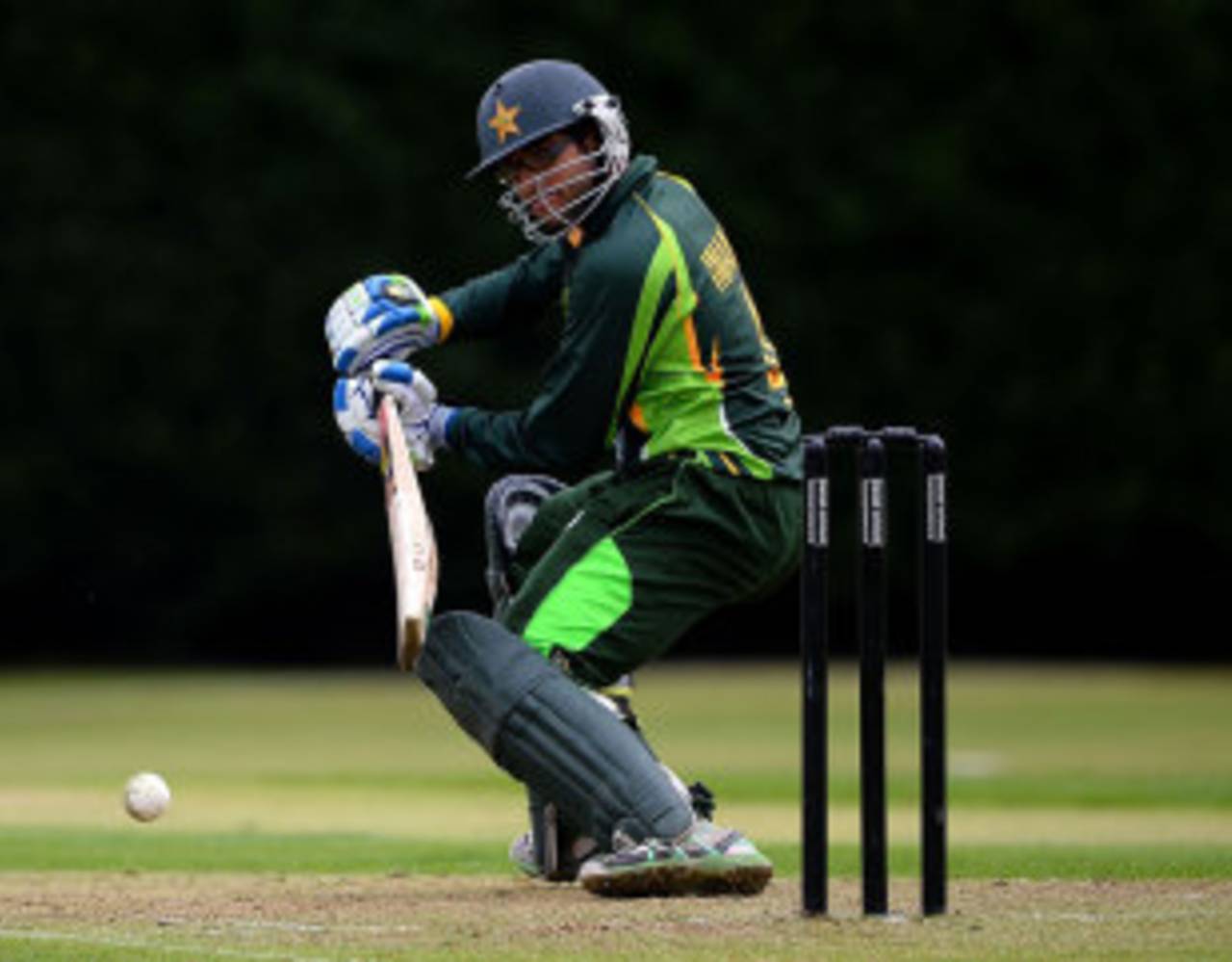There was a time
Imam-ul-Haq hated playing cricket. As a child, his ambition was to be a model, and he did not want his skin to tan, running about under the sun. His sedentary lifestyle meant he began to put on a few extra pounds. Cricket, he realised, was his best way of beating the fat.
"When I was in school I was very, very fat," says Imam. "I always loved food and never used to train. Then things started to change. I started to watch TV, see Shahid [Afridi], Younis [Khan] and my
chaachu, and I too wanted to be famous." The
chaachu Imam refers to is his uncle
Inzamam-ul-Haq. For years, Inzamam had to deal with tasteless taunts about his own weight and Imam wasn't going to go down that road.
Their names rhyme and both love to bat, but that's where the similarity ends. Imam bats left-handed, is slimmer, and his spectacles give him a scholarly look. While Inzamam is sparing with his words, Imam is anything but reticent. Even the most seasoned shorthand expert would have trouble keeping up with the bubbly, articulate 19-year-old.
It could be that the excitement of the
semi-final at the Dubai International Stadium hasn't yet sunk in. After Pakistan Under-19s' eighth-wicket pair of Zafar Gohar and Amad Butt kept their World Cup hopes alive with a jailbreak against England, Imam was among the first to dart from the pavilion to celebrate with his team-mates, risking his injured hamstring.
Imam, an opening batsman for his side, was the tournament's leading run scorer at that point, with a century and two 80s, sharing an important partnership with his captain, Sami Aslam, at the top. He pulled his hamstring early in his innings against England and struggled between the wickets, but fought for as long as he could. Retiring hurt was out of the question, but an lbw sent him back for 28, and he spent the next couple of hours a nervous wreck in the pavilion watching his team-mates swim against the tide and claw back.
That brings up another comparison with his uncle. "We both have very different personalities," Imam says. "He was very cool and calm and I can be very impatient, aggressive and emotional. He always tells me to be calm because when you play for Pakistan, you will have to face this kind of pressure and challenges.
Imam is already a veteran of two U-19 World Cups. Before embarking on his first in 2012, he learnt about conditions in Australia from Inzamam, who took part in the first-ever junior World Cup, in 1988. That Imam made it at 17, despite being a relatively late starter to the game, is testament to his rapid rise.
Originally from Multan, his parents moved to Lahore because they wanted Imam to attend a better school. It was one that helped him with his communication skills, for it punished students for speaking in any language other than English. Badminton was his preferred sport at the time, and he even won the school championship. Before cricket came along, he would spend his time at a badminton court near his house. One summer, during the holidays, he enrolled in a cricket club and there was no looking back. "I was a very good student," he says with a laugh. "I played an U-16 game and from then I started to take cricket very seriously."
Till then his summer holidays used to be spent in London, helping his dad in his business. Breaking into the U-16 team was a big deal, he says, given the competition in Lahore. He talks of an incident that spurred him to dream big. "I was watching the 2010 U-19 World Cup final [between Australia and Pakistan], and there were two players, Babar Azam and Usman Qadir, who played U-16 with me. I was thinking, 'Yaar, they are so lucky.'"
That year Imam got a call from Pakistan International Airlines when he was spending the winter holidays with his family and was asked to report for an U-19 tournament. "I scored 700 runs and, seriously, I don't know how I scored that!" he says. "Then the Pakistan U-19 team went to South Africa and I was literally crying because my name was in the reserves but not in the team."
He didn't have to wait long for his opportunity. The failure of the openers on that tour gave him a chance against the touring British Universities side and he made it to the Asia Cup in Malaysia, where he scored four fifties in seven games. That was his ticket to the World Cup a few months later. "I'd walk in my colony and people would recognise me and say that I will play for Pakistan," he says.
His rapid rise in age-group cricket was acknowledged by his father, but his mother insisted he take his studies seriously; it took a while for her to accept that professional cricket was his calling. "I spoke to her before the last game and she said that since I was the leading run scorer I was getting really famous on Facebook," he says with a chuckle.
He says doctors have advised him to switch to contact lenses from glasses, but he finds them uncomfortable and plans to have corrective laser treatment instead after the World Cup.
Now that he is already a first-class player, Imam's cricket commitments will only increase, but he says he hasn't abandoned his studies. "In my opinion, education is very important whether you play cricket or not," he says. "It will help me when I become a dad and I will tell my children they should study. I will try my level best to continue my studies."
Before that, four years after watching his former team-mates fail to get their hands on the trophy, he has a chance to help bring it home.
Kanishkaa Balachandran is a senior sub-editor at ESPNcricinfo
